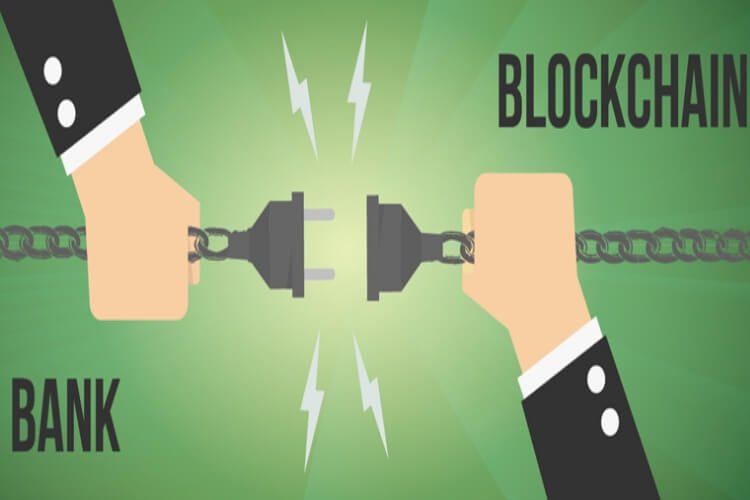Why are banks still indecisive when it comes to the issue of operations with cryptocurrencies?

Everyday my 9 year old comes home from school and can easily spend an hour retelling me all the trials and tribulations of her 4th grade class. Listening to her, one would think the world had gone crazy. Equally, by watching the popular press or cable networks, the casual viewer would think that the world has gone Bitcoin crazy. The rise of Bitcoin from $1000 to $19,000 in less than 12 months no doubts helps contribute to this media frenzy. Not to minimize my 4th grader’s daily classroom drama, nor the Bitcoin crazy media, but we need to put things in perspective.
Today, the cryptocurrency market including Bitcoin and the alternatives (Ethereum, Ripple, Litecoin) is just around $300 billion. That sounds like a lot, but actually not really. Apple has about $270 billion in cash sitting in its bank accounts and itself is worth around $900 billion. The physical gold market is roughly $8 trillion, the global equity market is at $100 trillion and the global bond market is at $215 trillion. And none of these can begin to compare to the foreign exchange market, which trades around $5 trillion in just one day!
The cryptocurrency market in all accounts is just a small corner lemonade stand. So when Jamie Dimon, CEO of JP Morgan, arguably the most powerful banker in the world is asked if he’s going to open up a lemonade stand, one can see that in his shoes that’s a bit silly.
Tidjane Thiam, CEO of Credit Suisse calls the Bitcoin market a bubble. A $300 billion bubble is nothing compared to the estimated $5 trillion loss with the dot-com bubble or the $15 trillion loss during the financial crisis. In fact, global banks have paid just around $320 billion in fines since the financial crisis in 2008, so the bubble looks more like the size of small slap on a banker’s wrist.
While the cryptocurrency market is relatively still small and - in the eyes of some - a bubble, big banks have still another reason to stay away or hope it goes away. Cryptocurrency and the power of the blockchain technology behind it is much more powerful than any lemonade stand.
In theory, cryptocurrencies could completely replace banks. Where banks are centralized, cryptocurrencies built atop blockchain technology are decentralized thus cutting out the middlemen (in this case, the banks).
In practice, banks won’t go away. But blockchain will almost certainly one day reduce profit from all corners of consumer banking. For example, banks will be forced to eliminate foreign transaction fees (that extra 3-4% you pay when you use your USD credit card abroad). Credit card payments will not take 1-2 days but will be settled immediately. Basically, any transaction that is not completed immediately with minimum transaction fees will be in danger of being modernized with blockchain technology. All of this is bad news to the profitability of big banks around the world.
And then there’s the issue of regulation and security. Cryptocurrencies like Bitcoin have largely existed and operated outside the control of mainstream financial institutions. Without regulation, there’s always a possibility for fraud and general instability. Hackers meddling in ICOs, type errors causing significant coin losses, and accusations of laundering all occurred over the past year. While regulation is certainly coming, the current security risk will cause all major financial institutions to pause. For now.
So, what I tell my 4th grader, I also tell to my Bitcoin crazy friends: take a breath, put yourself on the Moon and look down, it really isn’t that important where Bitcoin trades. What’s important, however, is the technology that powers cryptocurrency which stands to force the likes of Mr. Dimon to reevaluate that lemonade stand. When he finally understands that this technology cannot be stopped, even though it will reduce his bank’s profitability, that’s when we’ll see him and other bankers reluctantly embrace the cryptocurrency world.
A partner in blockchain application KR8OS, Marcus Sakamoto, is an old world global financial market expert with over 25 years working experience with leading investment banks and hedge funds in New York, Hong Kong, and Tokyo now in the new world frontier of blockchains, cryptocurrencies, and ICOs.